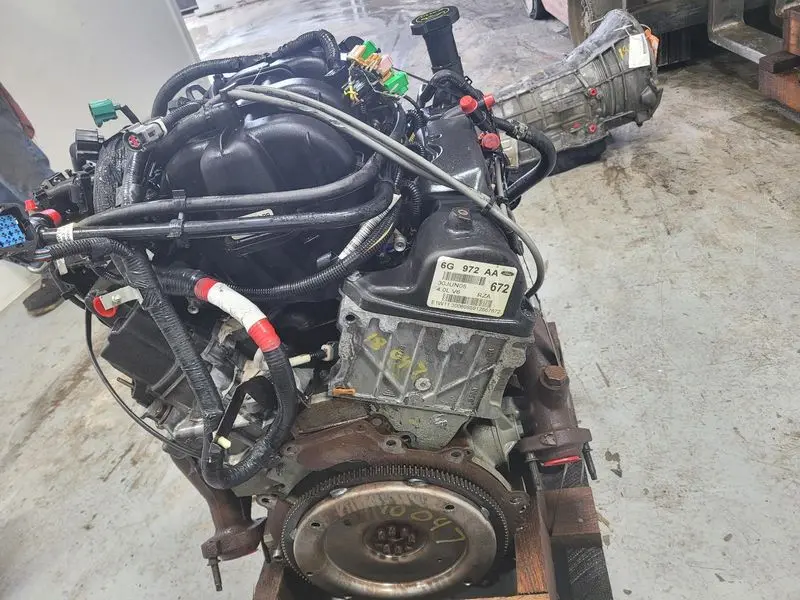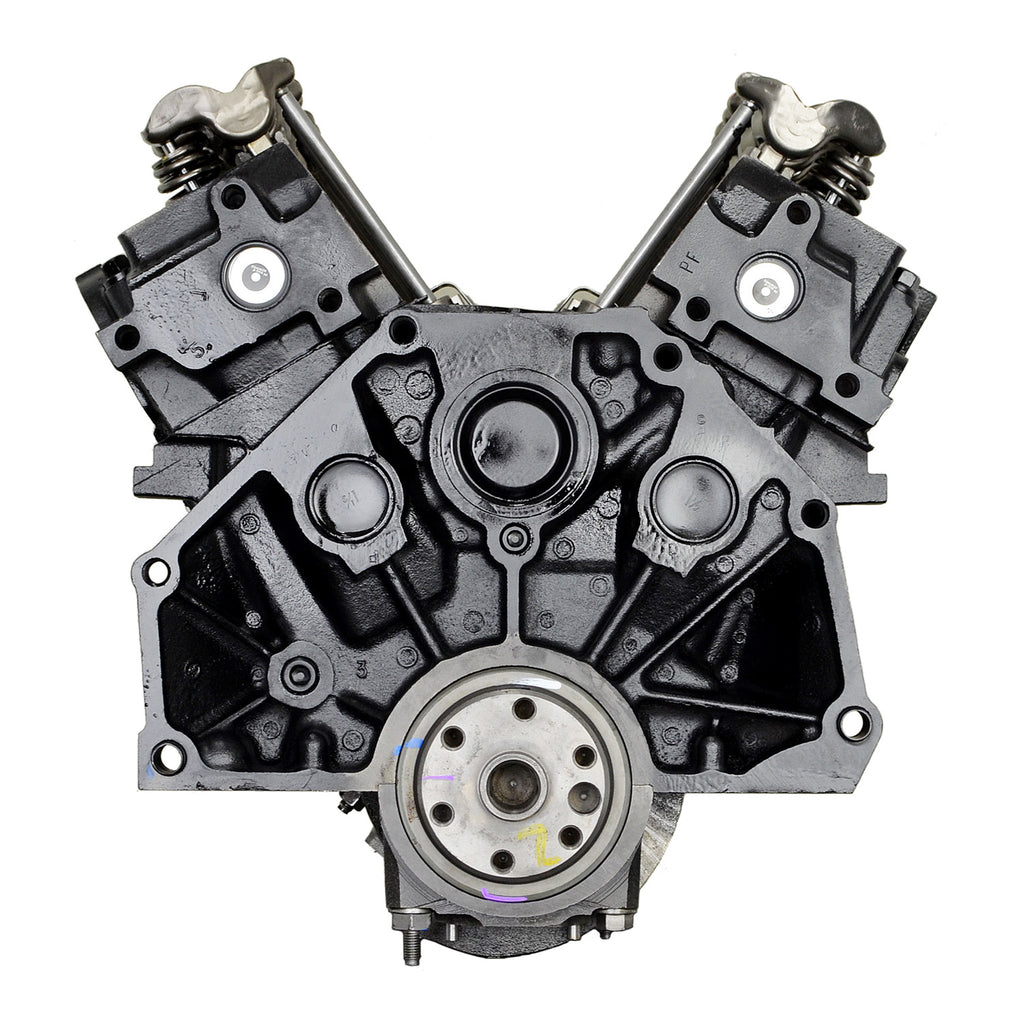How to Pick the Right Vehicle Engine for Optimum Efficiency and Performance
Choosing the proper cars and truck engine to achieve an ideal balance of performance and effectiveness necessitates a nuanced understanding of various engine types and their specific qualities. Aspects such as engine displacement, the variety of cylinders, and gas kind play a pivotal function in figuring out both power result and gas economic situation. While some might lean in the direction of performance-driven choices, others might focus on sustainability and performance. Comprehending these dynamics is necessary; however, the difficulty hinges on lining up these features with your specific driving choices and requirements. What factors to consider will ultimately direct your choice?
Understanding Engine Types
When selecting a vehicle, one of the most essential parts to consider is the engine type, which functions as the heart of the vehicle. The engine kind dramatically influences the vehicle's total performance, durability, and suitability for your driving needs. There are largely 3 engine types to consider: inner combustion engines (ICE), hybrid engines, and electric engines.
Inner burning engines continue to be one of the most usual, operating on gas or diesel. They are recognized for their power and acceleration, making them ideal for performance-oriented vehicles. Nonetheless, they might drop short in gas performance and ecological impact.
Crossbreed engines integrate an inner burning engine with an electric motor, offering a balance in between performance and gas economy. They are increasingly prominent for drivers seeking reduced exhausts while still supplying ample power.
Electric engines, powered completely by batteries, are acquiring grip as a result of their environmental benefits and lower running expenses. They offer immediate torque and a silent driving experience, making them ideal for metropolitan travelling.

Efficiency vs. Performance
Selecting the right engine kind includes evaluating the trade-offs between performance and performance. Efficiency generally refers to how well an engine can provide power and acceleration, which is frequently connected with bigger variation engines or those with turbocharging capacities. These engines typically offer exhilarating driving experiences and quick reaction times, making them prominent among fanatics.
On the various other hand, effectiveness concentrates on fuel economy and lower discharges. Smaller sized engines, specifically those furnished with innovative modern technologies such as direct fuel injection and variable shutoff timing, have a tendency to supply much better miles per gallon and reduced carbon footprints. While these engines might sacrifice some power compared to their larger counterparts, they usually master everyday driving circumstances where high performance is not constantly necessary.
Ultimately, the option in between performance and efficiency depend upon individual concerns. A chauffeur who values perky driving may focus on a high-performance engine, while somebody looking for affordable travelling might lean towards an efficient choice. Understanding these compromises is essential for making an educated choice that aligns with your driving requirements and lifestyle, making certain that the selected engine type complements your expectations for both performance and effectiveness.
Trick Requirements to Consider
Understanding vital requirements is important for making a notified decision regarding the best automobile engine. When selecting an engine, a number of essential variables call for factor to consider to make sure optimal efficiency and efficiency.
First of all, engine displacement, measured in litres or cubic centimeters, navigate to this site is an important specification. It shows the overall quantity of the engine's cylinders and usually associates with power result; larger displacements often generate more power. Next off, the variety of cyndrical tubes plays a substantial role in performance characteristics. Engines with even more cylinders can give smoother procedure and greater power, while smaller sized configurations can boost fuel effectiveness.
In addition, the engine's setup, whether inline, V-type, or rotary, influences the overall layout and performance qualities of the vehicle - 2.2 ford ranger engine. Turbocharging and supercharging modern technologies need to also be reviewed; these increase an engine's power output without substantially enhancing its size, hence improving efficiency
Gas kind is one more crucial factor to consider, as it affects both performance and prices. The engine's compression ratio affects efficiency and power distribution; a greater proportion usually leads to better effectiveness, but may call for superior gas. By very carefully examining these requirements, you can pick an engine that aligns with your performance and effectiveness objectives.
Reviewing Driving Needs
Reviewing driving requirements is an essential action in establishing the appropriate cars and truck engine for your lifestyle and usage patterns. If your driving primarily consists of brief commutes in city settings, a smaller engine with excellent gas performance may be adequate.
Consider the terrain you typically browse. Hilly or rugged landscapes may demand an engine with greater torque for much better efficiency. Additionally, mirror on guest and cargo needs; larger family members or those who transport goods might benefit from automobiles with raised power and capacity.
Diesel engines usually provide premium torque and fuel economic climate for larger cars, while fuel engines might offer a smoother and quieter experience. Factor in ecological considerations, as hybrid or electrical engines can provide a much more sustainable alternative without compromising efficiency.
Future Fads in Engine Innovation
As the automotive market remains to develop, innovations in engine technology are leading the way for extra efficient and lasting driving experiences. One considerable trend is the shift towards electrification, with crossbreed and completely electric powertrains gaining prestige. Automakers are investing greatly other in battery modern technology to boost power density and reduce billing times, inevitably improving the usefulness of electric cars (EVs)
Another arising fad is the development of hydrogen fuel cell engines. 2.2 ford ranger engine. These systems supply the capacity for zero-emission driving while giving refueling times comparable to typical gas engines. In addition, developments in combustion innovation, such as variable compression proportions and enhanced turbocharging, are optimizing typical interior burning engines for much better efficiency and efficiency
Digital combination is also a vital facet of future engine modern technology. The implementation of expert system and artificial intelligence permits real-time data evaluation, allowing smarter engine management systems that adapt to driving problems and improve gas efficiency.

Conclusion
Finally, choosing the ideal car engine requires a thorough evaluation of different factors, including engine kind, efficiency requirements, and efficiency objectives. By understanding the differences in between different engine types and thinking about vital specifications, people can straighten their options with details driving requirements. As innovations in engine modern technology continue to emerge, continuing to be notified about future trends will further improve decision-making, ultimately bring about a car that balances efficiency and fuel effectiveness properly.
Selecting the ideal car engine to accomplish an ideal equilibrium of performance and efficiency demands a nuanced understanding of different engine types and their specific characteristics. There are mostly 3 engine kinds to take into consideration: inner combustion engines (ICE), hybrid engines, and electric engines.
Efficiency usually refers to just how well an engine can deliver power and velocity, which is typically associated with larger displacement engines or those with turbocharging over here capabilities. Diesel engines frequently supply remarkable torque and fuel economic climate for much heavier automobiles, while gas engines may provide a smoother and quieter trip.In final thought, choosing the ideal cars and truck engine demands a detailed analysis of different aspects, including engine type, performance needs, and efficiency objectives.